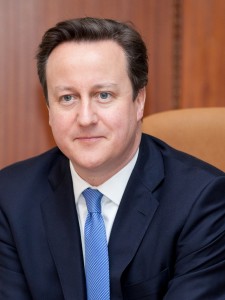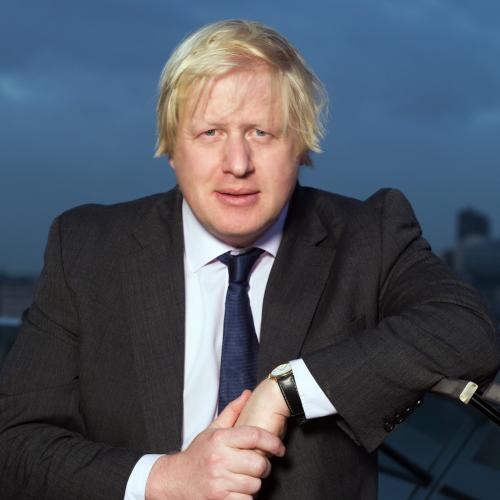Chris Heaton-Harris – 2022 Statement on Formation of the Northern Ireland Executive
The statement made by Chris Heaton-Harris, the Secretary of State for Northern Ireland, in the House of Commons on 9 November 2022.
Thank you Mr Deputy Speaker, with permission I would like to make a statement on the issues arising from the failure of the devolved government of Northern Ireland – the Northern Ireland Executive – to form.
Mr Deputy Speaker, the overriding priority of this Government is to implement, maintain and protect the Belfast (Good Friday) Agreement.
Northern Ireland is governed best when governed locally.
Since May, that has not been possible. But our commitment remains absolutely clear: this Government believes that this is the moment for the restoration of the devolved institutions and will work to that end as a matter of the utmost priority.
My predecessors have all referred to critical times for Northern Ireland. And there have been many. But this year is indeed a critical one.
Mr Deputy Speaker, I can see you are thinking that you might have heard that last section of my statement before. And that’s because you have – those words were spoken by a former Secretary of State, the former Member for Neath, at this dispatch box back in 2006.
And whilst these times are different with different issues affecting Northern Ireland, I and this Government believe strongly that people in Northern Ireland deserve a functioning Assembly and Executive, where locally elected representatives can address issues that matter most to the people that elect them.
That is why, back in May, people cast their votes in Northern Ireland – to give their communities a voice in Stormont.
However, for six months the Parties have not come together and, on the 28th October, the deadline to form an Executive, set down in law passed. That was the Northern Ireland Ministers, Elections and Petitions of Concern Act 2022. This is hugely disappointing.
As a result, Mr Speaker, I am bound by law to call new elections for the Northern Ireland Assembly, as set out in the New Decade, New Approach agreement, that have to take place within 12 weeks of the 28th October.
Since 28th October I have been engaging widely in Northern Ireland, with the Parties, businesses, community representatives and members of the public. And I’ve also spoken with other international interlocutors.
I think it would be fair to say, Mr Speaker, that the vast majority of those I have spoken to think that an election at this time would be most unwelcome.
What people would welcome is having their devolved institutions up and running – because they are worried when they see a massive £660m black hole in this year’s public finances at the same time as their public services are deteriorating.
They are worried that almost 187,000 people in Northern Ireland have been waiting for over a year for their first outpatient appointment.
And they are worried that there is a higher share of working age adults in Northern Ireland with no formal qualifications than anywhere else in the United Kingdom.
There is also, Mr Speaker, a legitimate and deep concern about the functioning of the Northern Ireland Protocol. This is felt across Northern Ireland and very strongly indeed in the Unionist community.
The one thing that everyone agrees on is that we must try and find a way through this current impasse – where I have a legal duty to call an election that few want and everyone tells me will change nothing.
Thus, I will be introducing legislation to provide a short, straightforward extension to the period for Executive formation – extending the current period by 6 weeks to 8th December, with the potential of a further six week extension to 19th January if necessary.
This aims to create the time and space needed for talks between the UK Government and the EU Commission to develop and for the Northern Ireland Parties to work together to restore the devolved institutions as soon as possible.
As I stand here, Mr Deputy Speaker, the Northern Ireland Executive has no Ministers in post.
This means no Ministers to make choices that deliver the public services people rely on; to react to the budgetary pressures facing schools, hospitals and other key services; to deliver the energy support payments that have been made available by this Government to people across the rest of the United Kingdom.
Before leaving his post, the Northern Ireland Finance Minister highlighted a £660 million in-year budget black hole, but there are no longer Ministers in the Executive to address this.
As civil servants do not have the legal authority to tackle these issues in the absence of an Executive, I must take limited but necessary steps to protect Northern Ireland’s public finances and the delivery of public services.
So, as has been done before, the legislation I introduce will also enable Northern Ireland Departments to support public service delivery; make a small number of vital public appointments, like to the Northern Ireland Policing Board; and address the serious budgetary concerns I’ve already mentioned.
And, when so many are concerned about the cost of living in Northern Ireland, I know the public there will welcome a further measure I intend to address – another matter addressed by the former Secretary of State who I quoted earlier.
People across Northern Ireland are frustrated that their Members of the Legislative Assembly continue to draw a full salary whilst not performing all of the duties they were elected to do. I will thus be asking for this House’s support to enable me to reduce MLAs’ salaries appropriately.
Mr Speaker, let me end by repeating that the overriding priority of this Government is to implement, maintain and protect the Belfast (Good Friday) Agreement.
This has been the bedrock of so much of the progress in Northern Ireland over the last quarter century.
There are some, Mr Speaker, who have called for “joint authority” of Northern Ireland in recent days and let me just say: this will not be considered. The UK Government is absolutely clear that the consent principle governs the constitutional position of Northern Ireland, under which Northern Ireland is an integral part of the United Kingdom. We will not support any arrangements that are inconsistent with that principle. In addition, we remain fully committed to the long established three stranded approach to Northern Ireland Affairs.
As we approach the 25th Anniversary of the Belfast (Good Friday) Agreement, I’ve found myself reflecting on the fact that political progress in Northern Ireland has so often required courage, understanding and compromise.
I hope the measures I have announced in my statement today allow some extra time for these qualities to be displayed once again, and I commend it to the House.



